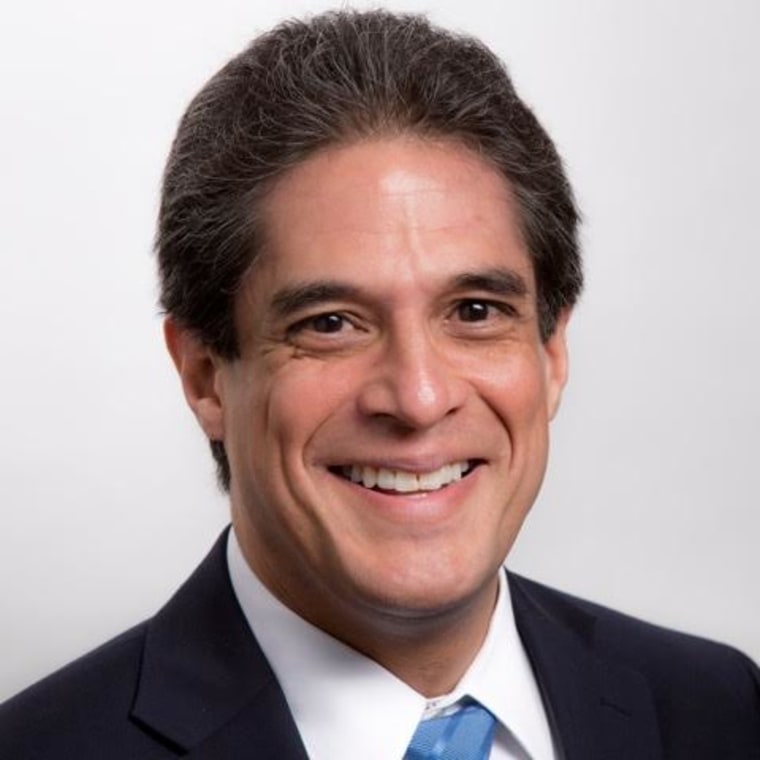Who scored points, who had some disappointing moments, and did the Republican candidates make a good case to prospective Latino voters on their national security plans? We asked political scientist Celeste Montoya and NBC Latino contributor Raul Reyes to give us their opinions of last night's GOP debate.
Republican Debate Reflects a New Reality after Paris and San Bernadino

Much has changed since the last GOP debate. The terror attacks in Paris and San Bernardino have elevated issues of national security. Sen. Ted Cruz’s poll numbers have surged as Dr. Ben Carson’s have dropped. Donald Trump has proposed temporarily banning Muslims from entering the U.S.
In both good and bad ways, the fifth GOP debate reflected these new realities. On the positive side, this debate was more serious than prior meetings of the GOP candidates. Cruz, Sen. Rand Paul, and Sen. Marco Rubio engaged in a substantive discussion about NSA surveillance and the government’s collection of meta-data. The candidates were asked about their strategies for combating ISIS and bringing stability to the Middle East. Rubio finally faced questions about his past support for the “Gang of Eight” immigration bill, so voters had a good opportunity to evaluate this crop of presidential hopefuls.
The downside was what went unsaid. Amid all the talk about keeping Americans safe, nobody brought up the Planned Parenthood shooting spree or other incidents that make up our domestic crisis of mass shootings. It seemed as though these candidates were only concerned about the possible threats posed by immigrants, Muslims, and refugees – and not by other Americans. There was also a near-consensus that we need “boots on the ground” in the Middle East, yet no talk of reinstating the draft or how we would pay for such military efforts.
The debate’s winner was Ted Cruz – almost. Despite several blatant falsehoods, such as stating that former President Bill Clinton deported 10 million undocumented immigrants, he was at ease expounding on the debate stage. But he blew it by attempting to talk over moderator Wolf Blitzer; it was as though Cruz couldn’t help reminding viewers of the less-than-pleasant side of his personality. The loser was Marco Rubio, if for no other reason than he was on the defensive for much of the night, facing challenges from several rivals.
One heated exchange, between Cruz and Rubio will likely return to haunt both men, should either of them win the GOP nomination. Questioned about his past efforts on immigration reform, Rubio stressed that he would consider a path to citizenship only after the border had been secured – plus ten more years. Cruz was adamant that he never was and never would be for “amnesty.” It was an odd moment, these two sons of immigrants apparently competing to show how hard they would make things for immigrants. Se nota. Noted.
Raul Reyes is an NBC Latino contributor, attorney, journalist and TV commentator.
Republicans Continue to Frame Immigrants as a Security Threat

In the 5th debate out of the 12 tentatively scheduled for the Republican primary, with a persisting number of podiums, it’s hard to see an end in sight. Tonight’s focus on national security, however, provided some important commonalities as well as distinctions to which voters should pay attention.
First, how are candidates defining national security? Or, to better reflect the tone of the debate, who is being framed as the primary threat to U.S. security? Here, the attacks in San Bernardino loomed heavily and the focus was placed on “radical Islamic jihadist terrorism,” the mantra of the night. For some, immigrants played prominently in the discussion. Trump stood by his call to ban all Muslims from entering the country and tied it together with his continued antipathy to Mexican immigration with a reference to how building a wall will work, like it has in Israel. Christie reemphasized his anti-refugee stance, pointing to the female participant in the San Bernardino attack.
There was, notably, no mention of the more prevalent domestic variety of terrorism. No discussion of the Planned Parenthood shooting in Colorado Springs or the numerous other mass shootings that have occurred on a near daily basis over the past year. In fact, Cruz’s awkward analogy about democrats and horse thieves drove this point home by intimating that all terrorists are Muslim, even if not all Muslims are terrorists. While candidates failed to challenge the former, some did emphasize the later. Christie talked about working with Muslim Americans to stop terrorism, and Bush stood by his brother’s statement that Islam is a religion of peace and that Arab allies were vital to stopping ISIS.
The second distinction to consider is the spectrum and content of responses. At the more extreme end came Trump, Cruz, Fiorina, and somewhat surprisingly, Christie. In addition to his ban on Muslims, Trump defended his call to go after the families of suspected terrorists; Cruz talked about carpet bombing ISIS into oblivion, with no response to the moderators follow-up asking about innocent civilians; Fiorina continued her theme of military feats of strength to make countries respect and work with us; and Christie did not hesitate in his response that he would absolutely shoot down Russian war planes. Even Carson, who was actually questioned about whether or not he’d be able to make some of these tough decisions, talked about how civilian casualties might actually be merciful.
Advocating for more moderate approaches, at least by comparison, were Bush, Rubio, Kasich, and Paul. Bush and Rubio offered the most detailed plans, both relying heavily on military build-ups, but emphasizing coalitional approaches. Rand Paul, on the other hand, remains the outlier. He has and continues to be the most skeptical about U.S. interventions, arguing against providing arms to those who may later become enemies. He’s also the staunchest skeptic for repealing civil liberties in the name of security, starting the debate with a reminder that it was the anniversary of the Bill of Rights.
All in all, it was a sobering night that gave new meaning to Franklin D. Roosevelt's platitude, “there is nothing to fear but fear itself.” So, while I may be growing weary of the debates, I’m not necessarily in a rush to see what lies at the end.
Celeste Montoya is an Associate Professor in the Department of Women & Gender Studies at the University of Colorado Boulder.
